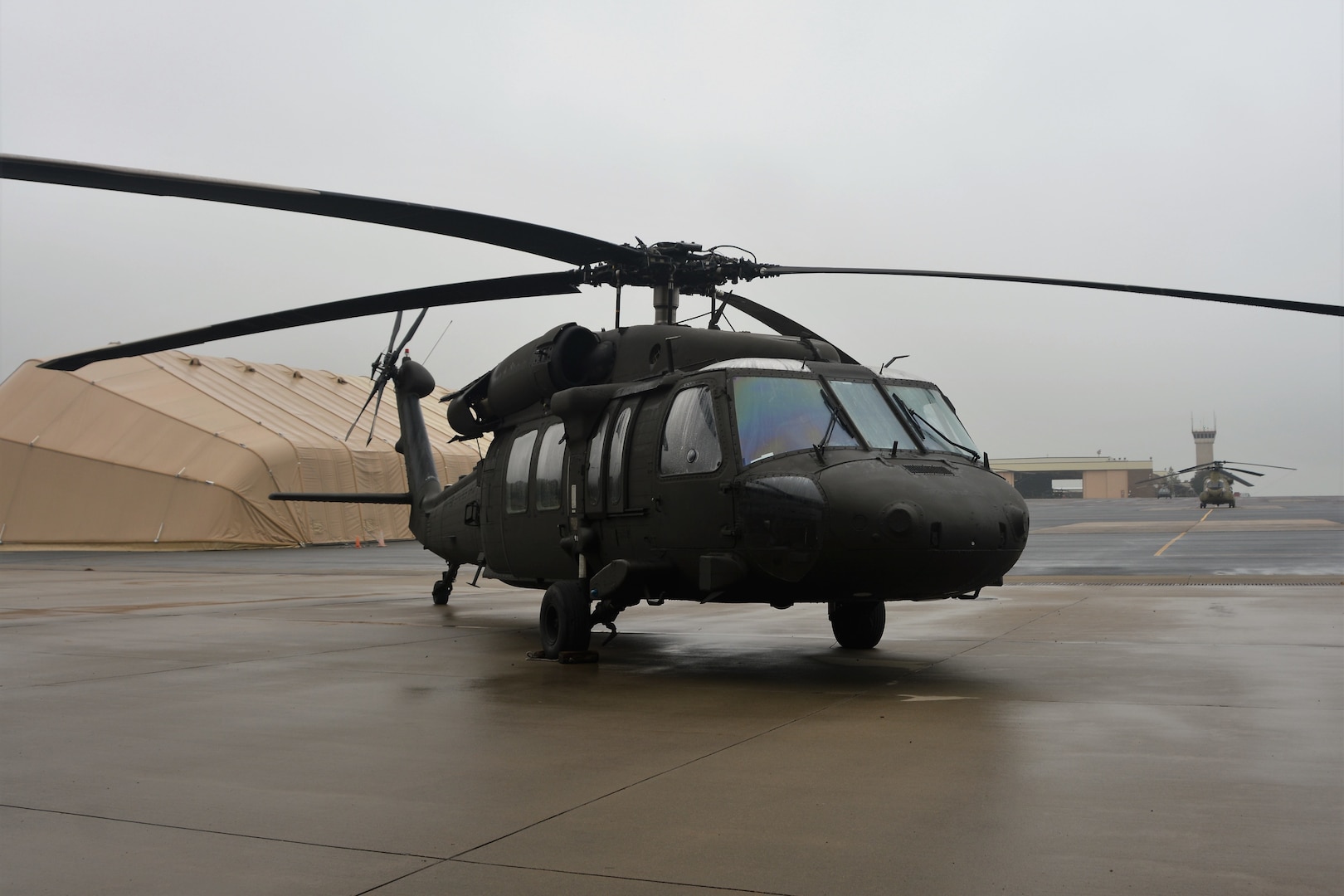Upkeep and Maintenance for UH 60 Helicopters
Upkeep and Maintenance for UH 60 Helicopters
Blog Article
The Impact of Lasting Practices on the Future of Aircraft Operations and Emissions Reduction
As the aviation market faces increasing analysis over its ecological influence, the adoption of sustainable techniques emerges as a critical pathway towards future airplane procedures and exhausts reduction. Developments in lasting aviation gas and innovations in crossbreed propulsion modern technologies stand at the center of this change, promising considerable reductions in greenhouse gas emissions.

Review of Sustainable Practices
Lasting methods in aircraft procedures incorporate an array of approaches focused on decreasing ecological influence while keeping operational efficiency. These practices are vital in the aviation sector's commitment to lessening its carbon footprint and sticking to worldwide environmental standards. Key initiatives consist of enhancing flight courses to lower gas consumption, improving upkeep methods to make certain aircraft operate at peak performance, and applying sophisticated modern technologies such as winglets and light-weight products that enhance the rules of aerodynamics.

Educating and engaging personnel on sustainability practices additionally play a vital function, promoting a society of ecological obligation within organizations. In general, the integration of these lasting techniques not just helps in reducing discharges however additionally enhances the long-term practicality of the aeronautics sector, guaranteeing it satisfies the needs of both clients and regulatory bodies while adding to global sustainability goals.
Ingenious Fuel Alternatives
Various cutting-edge fuel choices are arising as essential remedies to decrease the air travel market's dependence on standard fossil gas. Among these choices, Lasting Aviation Gas (SAFs) have gained significant interest due to their prospective to lower lifecycle greenhouse gas emissions by as much as 80% compared to traditional jet fuels. SAFs are stemmed from various feedstocks, consisting of waste oils, agricultural residues, and also algae, making them a functional choice for the industry.
An additional encouraging alternative is hydrogen gas, which, when utilized in gas cells, creates just water vapor as a byproduct. Additionally, electric propulsion systems are being explored, leveraging battery innovation to power aircraft.
Lastly, biofuels stemmed from biomass are being investigated, providing a sustainable alternative that can be blended with typical gas. Jointly, these cutting-edge fuel choices represent an essential action toward accomplishing a sustainable air travel environment, straightening with international emissions decrease targets and boosting the market's environmental stewardship.
Technical Developments in Aviation

Just how can technological innovations reshape the future of air travel? The integration of innovative modern technologies is essential in transforming airplane procedures, improving performance, and reducing emissions. Advancements such as hybrid and electric propulsion systems are at the forefront, appealing substantial decreases in fuel consumption and greenhouse gas exhausts. These systems leverage innovations in battery modern technology and power administration, enabling airplane to run with a lower environmental footprint.
Furthermore, the application of advanced materials, such as light-weight composites, adds to enhanced aerodynamics and gas effectiveness. Using expert system and artificial intelligence in flight procedures enhances path planning and decreases fuel shed by allowing real-time modifications based upon weather condition and website traffic conditions. Additionally, the advancement of autonomous and remotely piloted airplane systems stands to transform freight and guest transport, possibly raising effectiveness while minimizing human mistake.
In addition, lasting aviation innovations, including sophisticated air traffic administration systems, can decrease and enhance operations congestion, resulting in reduced exhausts during trip. These advancements collectively represent a paradigm change in aeronautics, guaranteeing a future where sustainability and functional performance are intertwined, therefore sustaining the sector's dedication to minimizing its ecological impact.

Regulatory Structure and Conformity
Because of the expanding focus on environmental stewardship within the air travel field, the regulatory structure regulating aircraft procedures is progressing to advertise sustainable practices. Regulative bodies, such as the International Civil Aeronautics Company (ICAO) and various national webpage aeronautics authorities, are presenting strict standards focused on minimizing discharges and boosting operational efficiency.
These regulations commonly include the fostering of Sustainable Air travel Gas (SAF), which has actually been recognized as a key element in accomplishing reduced carbon footprints. Additionally, compliance with these laws calls for airlines to execute innovative modern technologies and functional practices, such as optimized trip courses and enhanced air traffic administration, to decrease fuel usage.
Additionally, the enforcement of exhausts trading systems and carbon countering initiatives is ending up being progressively here are the findings prevalent, compelling airline companies to monitor and report their discharges properly. Non-compliance can result in considerable charges, thus pressing drivers to focus on sustainability in their organization models.
Inevitably, the advancing governing landscape not only drives advancement and financial investment in green modern technologies but likewise fosters a culture of liability within the air travel market. As these structures proceed to develop, the concentrate on sustainable techniques will be essential to attaining the field's lasting environmental objectives.
Future Trends in Aircraft Operations
As the aviation market adapts to an increasingly strict regulatory setting, future fads in aircraft procedures are readied to concentrate on ingenious services that further enhance sustainability and performance - uh 60. Key advancements will likely include the fostering of innovative air traffic monitoring systems, which make use of real-time data and artificial intelligence to enhance trip courses, minimizing fuel consumption and exhausts
Another considerable pattern is the enhanced integration of lasting aeronautics gas (SAFs) These choices to traditional jet fuel, acquired from sustainable resources, can dramatically reduce lifecycle greenhouse gas discharges. The market's commitment to SAFs will likely increase as airlines collaborate with gas producers to make sure accessibility and cost-effectiveness.
Furthermore, the press towards electrification and crossbreed propulsion systems is getting energy. Emerging airplane layouts will certainly incorporate these innovations, using quieter and much more reliable operations, particularly for short-haul trips.
Final Thought
The adoption of sustainable aeronautics fuels, coupled with innovations in electrical and hybrid propulsion systems, is essential for lessening lifecycle greenhouse gas discharges. Optimizing trip courses and embracing innovative innovations add to a quieter and more environmentally friendly aeronautics market.
Technologies in lasting aviation gas and developments in crossbreed propulsion important source innovations stand at the center of this makeover, promising considerable decreases in greenhouse gas exhausts.Countless innovative gas alternatives are emerging as critical solutions to reduce the aviation market's dependence on standard fossil gas - uh 60. Amongst these options, Sustainable Aviation Gas (SAFs) have gained substantial attention due to their possible to lower lifecycle greenhouse gas exhausts by up to 80% compared to standard jet fuels.One more substantial fad is the raised integration of sustainable aeronautics gas (SAFs) The adoption of lasting aeronautics fuels, coupled with improvements in hybrid and electrical propulsion systems, is vital for minimizing lifecycle greenhouse gas discharges
Report this page